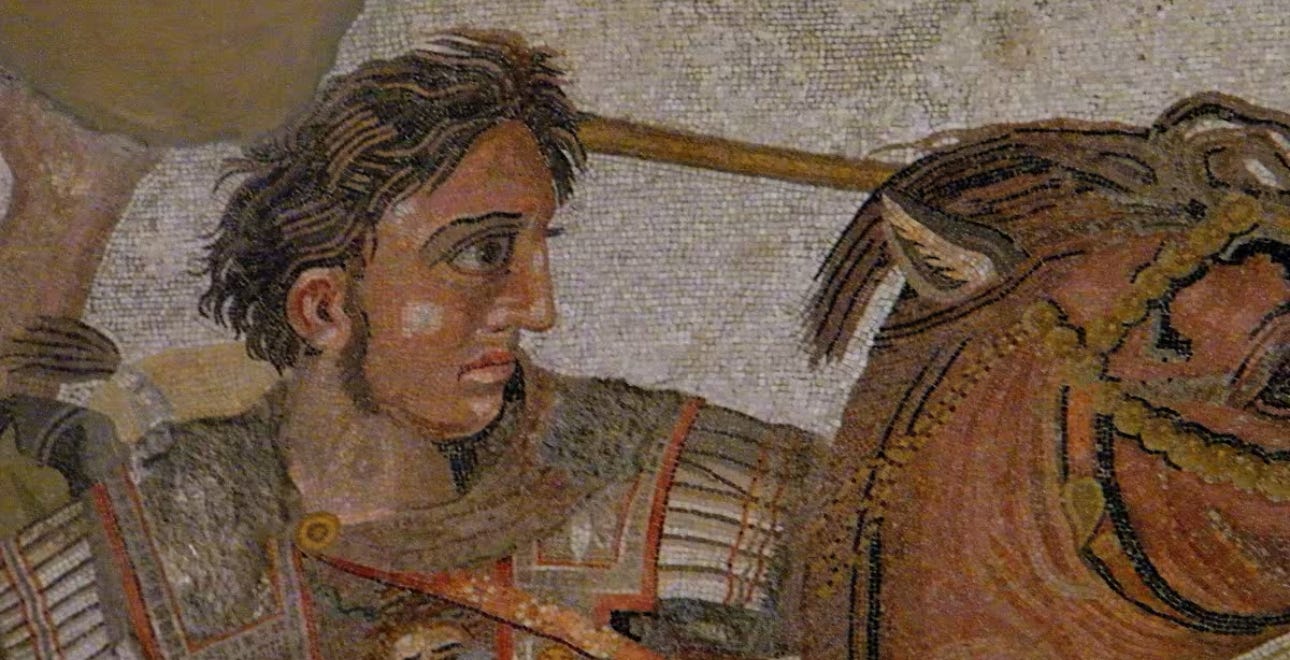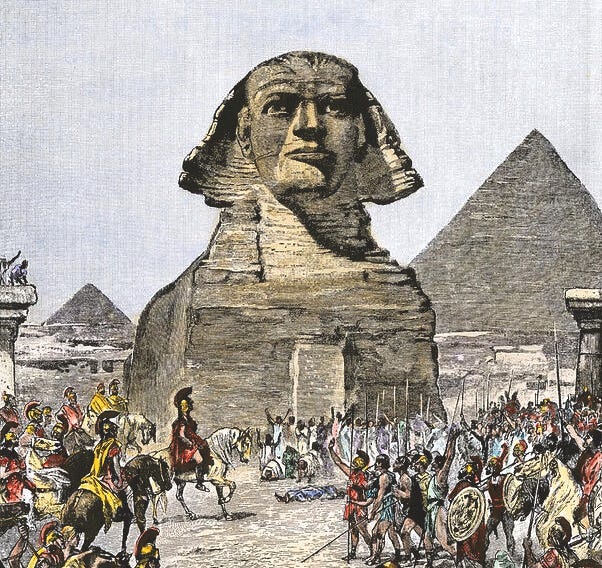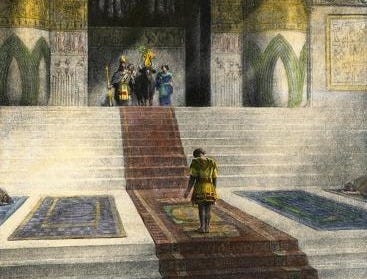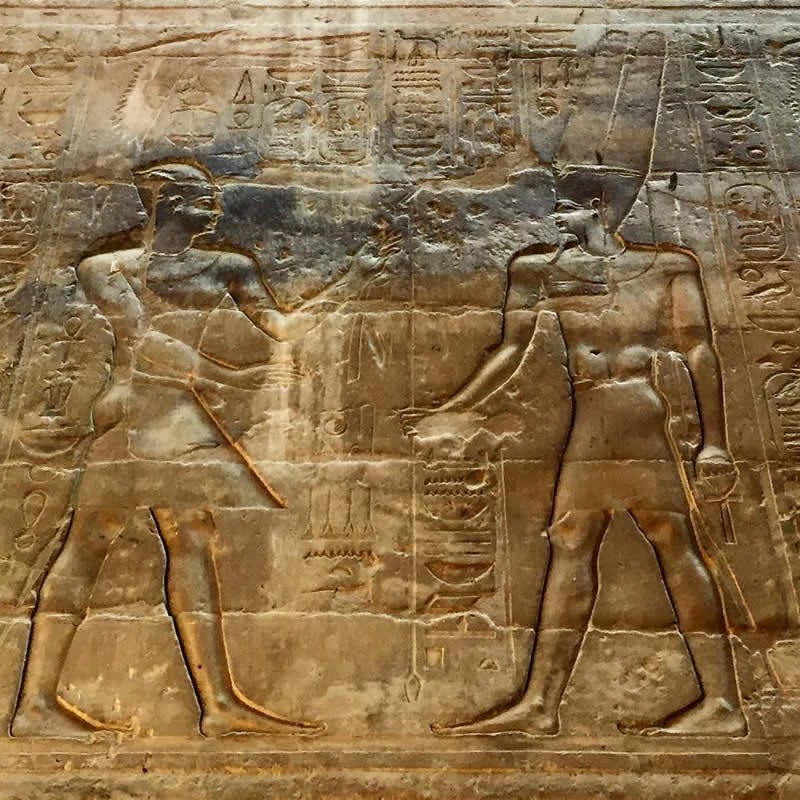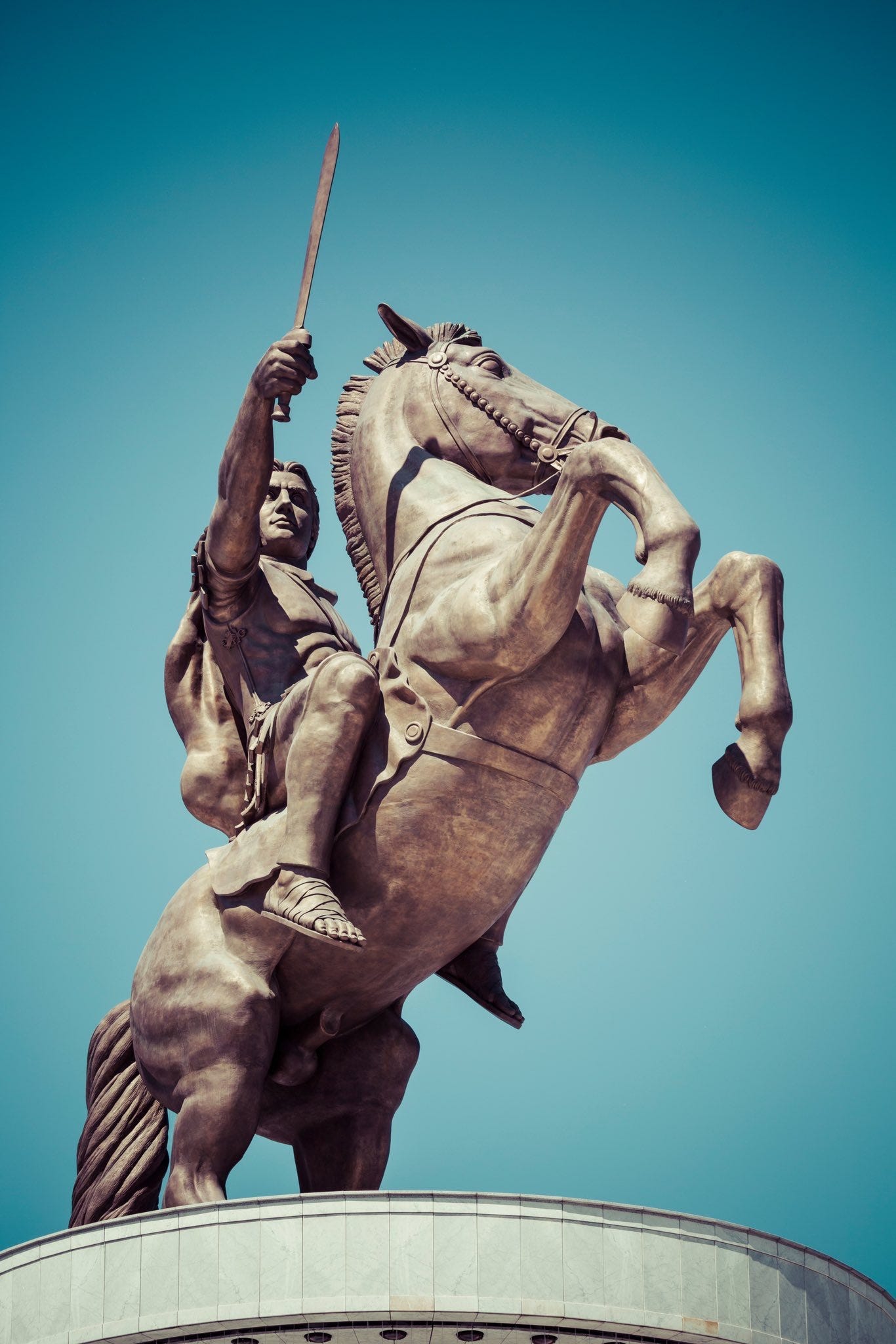Alexander the Great Became Pharaoh
A Bloodless Triumph
The anniversary is coming up in a couple days and I did not want to miss it.
On November 14, 332 BC, Alexander the Great was crowned pharaoh of Egypt in Memphis. This ushered in three centuries of Hellenistic rule over the Nile’s ancient land without a single battle fought.
Welcomed as a Liberator
Alexander’s entry into Egypt was unlike his grueling sieges of Tyre and Gaza. The Persian satrap Mazaces surrendered peacefully, handing over 800 talents of gold and Memphis itself. This stemmed from a decade of harsh Persian rule under Artaxerxes III, who had plundered temples, seized sacred texts, killed the holy Apis bull, and imposed crushing taxes to crush revolts.Egyptians saw Alexander not as an invader but a savior. Crowds cheered his arrival, and priests reopened sealed temples. Historian Curtius Rufus noted the widespread joy that met the Macedonians.
Honoring the Sacred Bull
In Memphis, Alexander sacrificed to the Apis bull, the living embodiment of the god Ptah. This act rejected Persian desecrations and restored ma’at (Egypt’s idea of cosmic harmony) gaining him instant legitimacy beyond any military win.
The Pharaonic Coronation
During the ceremony, Alexander received the traditional five-fold titles: Horus name as “the brave ruler who attacks foreign lands,” Two Ladies name evoking a mighty lion, Golden Horus as ruler of seas and lands, throne name “Setep-en-Ra Mery-Amun” (Chosen of Ra, Beloved of Amun), and his birth name “Aleksandros.” The high priest bestowed the pschent double crown, which symbolized unity over Upper and Lower Egypt. Reliefs later showed him in pharaonic garb, performing rituals. He blended cultures by hosting Greek games alongside Egyptian festivities.
The Oracle’s Divine Blessing
In January 331 BC, Alexander braved the Libyan desert to consult the Oracle of Amun at Siwa, a risky trek where a Persian army had once vanished. Miraculous rains, guiding ravens, and cleared paths marked the journey. The priest hailed him as Amun’s son, affirming his divine pharaonic status. Alexander kept the oracle’s full message private but soon minted coins with Amun’s ram horns, signaling god-like rule that shaped future Hellenistic cults.
Building Alexandria
Before leaving in spring 331 BC, Alexander founded a coastal city near the Nile’s western branch, sketching its grid with barley flour. Birds eating it were seen as a sign of future prosperity. Alexandria became the Hellenistic world’s intellectual hub, home to the Great Library, and was a blend of Greek and Egyptian ideas that lasted centuries.
Embracing Divine Kingship
To Egyptians, pharaohs were both human and divine, maintaining order through rituals. Alexander adopted this fully, building chapels at Karnak and Luxor, where carvings depicted him as Horus and son of Ra. He studied Egyptian texts with philosopher Psammon, showing genuine engagement rather than mere politics.
A Lasting Hellenistic Legacy
After Alexander’s death, his general Ptolemy took Egypt, founding a dynasty that lasted until Cleopatra in 30 BC. They followed his blueprint: acting as Greek kings to Hellenes and pharaohs to natives, preserving temples while advancing science in Alexandria, and creating hybrid gods like Serapis. This fusion spurred innovations in math, philosophy, and more, influencing Mediterranean civilization. All because of Alexander.
Thanks for reading!!


